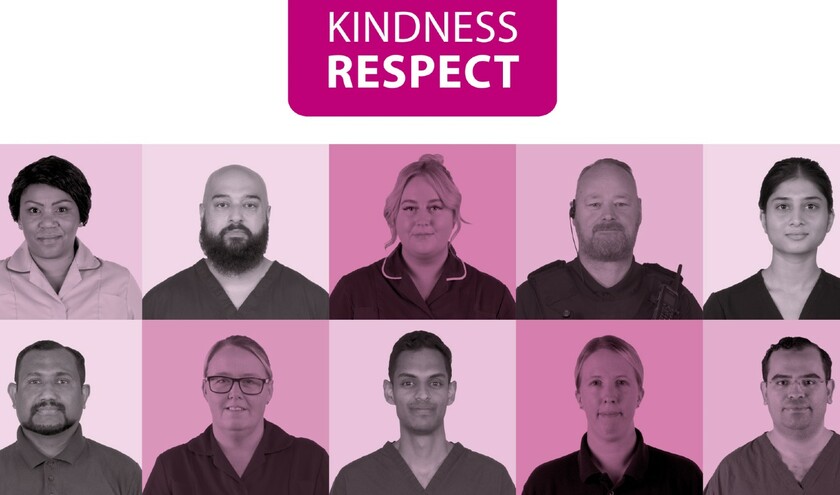Shockingly stories of healthcare workers facing verbal and physical abuse are becoming more commonplace.
Over one in four people (25%) completing the 2023 NHS Staff Survey experienced at least one incident of harassment, bullying or abuse from patients or other members of the public in the past year. Almost one in six (14%) experienced an incident of physical violence that year.
Meanwhile, statistics published by the Department of Health in 2023 showed there were more than 50,000 attacks on healthcare workers over a five-year period.
Leona Cameron, the Royal College of Nursing's head of health, safety and wellbeing, said: ‘It should come as no surprise that incidences of violence and verbal abuse are on the rise when care is increasingly taking place in corridors and other inappropriate settings by overstretched and understaffed nursing teams.'
Staff in ambulance trusts remain by far the most likely to face violence from patients and the public, with 28% of respondents in 2023 saying they had experienced at least one incident in the past 12 months. This compares to 7% of staff in community trusts and 5% of staff in acute specialist trusts. Staff in ambulance trusts reported the most violence from managers or colleagues, at 3% in 2023.
NHS England in collaboration with the Royal Society for Public Health have developed an eLearning course which aims to provide colleagues with a public health and trauma-informed approach to preventing and reducing violence against staff.
The course helps staff: Identify the key policy and legislative drivers for violence prevention and reduction in healthcare settings, understand and describe the individual, situational and environmental factors that can cause violence, describe how using public health and trauma informed approaches can prevent violence at individual and community level, and explore a range of best practice approaches that can be used to minimise the risk or impact of violence.
VPR standard
In December, NHS England published a refreshed Violence Prevention and Reduction (VPR) standard, updated from the previous 2021 version. The standard delivers a risk-based framework that supports employers to create a safe and secure working environment for NHS staff. Employers can now assess themselves across seven domains and use a red, amber and green rating to identify areas to action and measure progress over time. The refreshed standard includes a new assessment and improvement action plan tool and updated guidance.
Danny Mortimer, chief executive of NHS Employers, said: ‘NHS Employers and the Social Partnership Forum have promoted the standard and encouraged a partnership approach between employers and trade unions in implementing it in NHS organisations. We promote and enable a space for discussion and reflection on good practice and barriers in relevant network meetings.'
He added: ‘NHS Employers will continue to support the SPF and NHS England with this work and on promoting and implementing the VPR standards. There are plans to bring employers and staff representatives to share learning together. This will happen through a webinar to promote the VPR standards and update on other elements of NHS England's work programme.'
Kindness campaign
In January, University Hospitals of Leicester NHS Trust (UHL) launched a campaign to tackle physical and verbal abuse towards staff working on its premises. The Kindness campaign features images of real healthcare workers talking about their recent experiences at the hospitals, with straplines such as ‘we are proud to care for you' and ‘please don't abuse our staff'.
Kim Hudson, head of security at UHL, said: ‘While most patients and visitors treat our colleagues with kindness and respect, a small number seem to think it is acceptable to use sexist, racist and abusive language, and even physical violence. We take all reports of abusive behaviour towards our colleagues very seriously. Our colleagues work incredibly hard every single day to make a difference to the lives of so many people.'
This came after UHL became the first acute trust in the country to start using a safety app in December to keep its staff safe. Staff can download the app, share their location, and alert security teams about any safety-related incidents, including violence or aggression, at the touch of a button.
UHL introduced body worn cameras to the Emergency Department at the Leicester Royal Infirmary last year. The teams report that they are a successful deterrent for would-be offenders and, where needed, provide vital evidence to hand over to the police for further investigation. The cameras have been so successful that they will be rolled out in the Clinical Decisions Unit at Glenfield Hospital.
Union action
Meanwhile, other trusts have signed up to Unison's End Violence at Work Charter, which aims to protect employees working in public services from acts of abuse, assault and threatening behaviour. To sign the charter, organisations must explain and provide evidence for how they meet 10 important standards for protecting against violent incidents. These include a clear incident-reporting and investigation procedure, continually collecting and monitoring data on violent incidents, and providing training to ensure staff know how to deal with threatening situations appropriately.
Unison deputy head of health Alan Lofthouse said: "Pressures on the NHS mean staff are working in an ever more stressful environment, and the threat of attack or abuse is rising. That needs to be tackled immediately to stop workers leaving essential roles.
‘Better systems for reporting and investigating incidents are needed to help focus on what should be done to reduce violent attacks and procedures put in place to deal with them.'
In addition, the GMB union said violence against healthcare workers ‘is high' on its agenda of campaigning priorities.
Rachel Harrison, GMB National Secretary, said: ‘We are continuing to work with local teams to ensure better health and safety practices are in place, that employers are truly to manage and prevent risks of violence, and that where incidents do happen, they are reported, take seriously, and that individuals are given all of the support they need to recover.
So it's clear NHS leaders, their teams and trade union representatives are working hard to reduce violence, but levels remain too high. There was a very small fall in reported violence levels in the 2023 NHS Staff Survey, but we will need to wait for the 2024 survey results to see whether this trend has continued.



